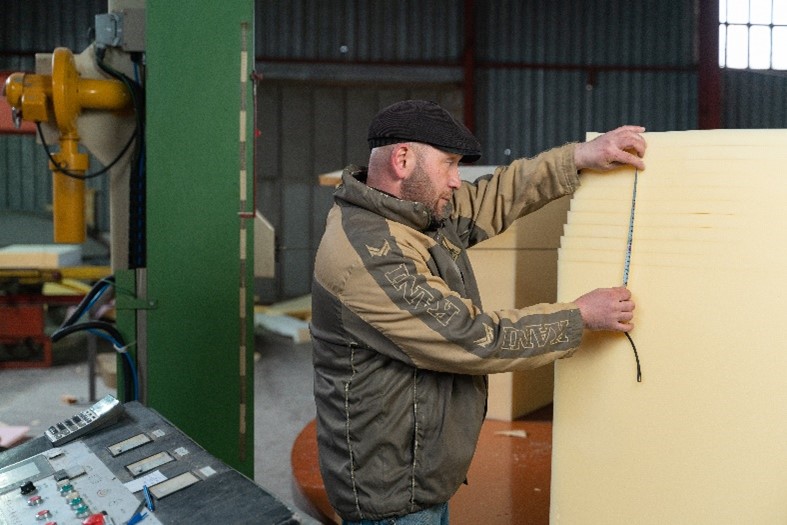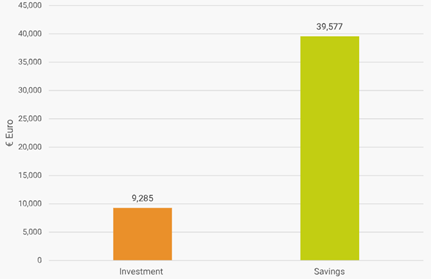
As published on the website of the United Nations Economic Commission for Europe
For industries all over the world, achieving efficient production (in terms of material, energy, water and waste) has shifted from being a good business strategy to a clear business imperative. With resource scarcity on the rise topped with the increasingly visible environmental challenges, resource-efficient and cleaner production (RECP) has the potential to help enterprises increase the productive use of natural resources, minimize the generation of waste and emissions and foster green and sustainable goods and services.
Stopping climate breakdown is directly linked to curbing the inefficient use of natural resources, as the latter remains a key contributor to biodiversity loss and environmental degradation. This issue is especially critical in the industrial sector, where the high costs related to resource depletion have only increased the burdens on small and medium-sized enterprises (SMEs).
As a response to these challenges, in the Eastern Partnership (EaP) region of the European Union (EU), programmes such as the EU-funded EU4Environment Action are helping countries preserve their natural capital and unlock opportunities for greener growth. The EU4Environment Action is implemented by a consortium of partners, including the Organisation for Economic Co-operation and Development (OECD), the United Nations Economic Commission for Europe (UNECE), the United Nations Environment Programme (UNEP), the United Nations Industrial Development Organization (UNIDO) and the World Bank. Here, amongst other initiatives, UNIDO is promoting the RECP methodology as a stepping stone to achieving circular economy and green industry (SDG targets 6.a, 6.3 and 12.5).
The introduction of RECP has been a central task for UNIDO’s work in Georgia since 2014 and Ukraine since 2007 by implementing RECP demonstration projects and establishing RECP clubs in two selected regions of each country. In line with the UN 2030 Agenda for Sustainable Development, these initiatives have been specifically focused on the sustainable consumption and production of the industrial sector (by helping enterprises maximize resource use and minimize the generation of waste), as well as partnerships (bringing together ministries of environment and economy as key national partners and mobilizing the industrial sector, professionals, members of academia and other key stakeholders). Hitherto, over 100 SMEs benefited from the application of the RECP methodology and 10 regional RECP clubs have been created only since the launch of EU4Environment in 2019. Similar RECP activities are also taking place in other EaP countries – Armenia, Azerbaijan and the Republic of Moldova.
In Georgia, 13 experts were trained on the RECP methodology, while 17 SMEs joined the RECP clubs in Lower Kartly and Kakhety, from where over 40 SMEs benefited from the RECP coaching embedded within the clubs. Industrial waste mapping pilots were also developed in Rustavi and Zestaponi to help enterprises embrace practices that minimize waste and promote industrial symbiosis (SDG target 12.4).[1]
“Our company had big energy and water consumption, so we were looking for advice on how we could better use these resources in a rational and efficient way. The results exceeded our expectations, as the implementation of RECP measures led to a decreased energy and water usage, and a significant reduction of waste,” said Roman Ishkhneli, Chief Engineer, QARTULI FERMA, Georgia.[2]
The RECP experience was also successful in Ukraine, where the Amalgamated Territorial Communities of Slavuta City in Khmelnytskyi oblast and Davydiv Village in Lviv oblast were selected to undergo industrial waste mapping exercises.[3] Separately, over 20 enterprises took advantage of the RECP opportunities to reduce material inputs and pollution, out of which eight were featured as success stories.[4]
“Thanks to the project and the RECP implementation, we became confident that the industrial processes and operations could be improved through cleaner production. Moreover, this not only decreased waste generation and environmental pollution, but also saved our budget and generated additional income for the company through rational resources consumption,” said Oleksii Kashkariov, Head of the Production Technical Preparation Department, UKRSTAL DNIPRO structural steel fabrication plant, PJSC, Ukraine.[5]
This is because RECP entails a continuous application of preventive environmental strategies to processes, products and services to keep resources in use for as long as possible by extracting their maximum value and relocating waste from the end of the supply chain to the beginning, thus giving a new life to used materials (SDG target 9.4). RECP can be applied to the processes used in any industry. A key feature of the success of RECP is the monitoring of performance improvement both in terms of increased resource productivity, as well as in terms of decreased pollution intensity. Performance indicators enable companies to monitor their use of energy, water and materials, as well as the generation of waste and emissions. Between 2013 and 2020, UNIDO carried out awareness-raising activities, trained national service providers, educated new experts, conducted in-plant assessments and helped establish RECP clubs to scale up RECP in key industrial regions. The RECP assessments identified a variety of RECP options that companies were then able to implement based on their specific needs, resources, capacity and priorities. In total, 10 Georgian SMEs and 8 Ukrainian SMEs (operating in the construction sector, metallurgy, dairy production, chemicals or food and beverages) were assessed under EU4Environment.
For an average investment of only EUR 9,285 per year, the selected companies from Georgia and Ukraine recorded potential economic savings four times their investment of EUR 39,577 per year.
Moreover, on average, the potential electricity savings (kWh per year) were 20 times higher than the cost of investment with fuel (m3 per year) being the resource with the highest annual savings of EUR 248,153 per year. This was followed by water savings (m3 per year) and material savings (tonnes per year).
RECP also prompted companies to decrease the generation of waste and pollution. Here, the most important potential achievement was the reduction of wastewater by 1,846 m3 per year, emissions of CO2-equivalent by 945 tonnes per year and general waste by 76 tonnes per year during 2015-2020.
Alongside its implementing partners within EU4Environment, UNIDO supports Ukraine’s industry in its green reconstruction and recovery, as a greener industrial sector is crucial for the development and resilience of the economy and society. Enhancing industry’s resource, energy and carbon productivity is particularly significant in the current context.[6]
To this end, UNIDO is working with the Government of Ukraine to develop a green recovery and post-crisis programme for the country’s inclusive and sustainable industrial development. It will be synergetic with the country’s National Recovery Plan and the United Nations Transitional Framework for Ukraine 2022-2023.
Figure 14
Investments to and savings from resource efficient and cleaner production by selected companies in Georgia and Ukraine

[1] EU4Environment profile, Georgia, achievements in 2021-2022, 2022, https://www.eu4environment.org/app/uploads/2022/08/Georgia-profile-2022.pdf
[2] EU4Environment brochure, RECP in Qartuli Ferma, 2022, https://www.eu4environment.org/app/uploads/2022/04/BC-Georgia-Qartuli-Ferma-1.pdf
[3] EU4Environment profile, Ukraine, achievements in 2021-2022, 2022, https://www.eu4environment.org/app/uploads/2022/08/Ukraine-profile-2022.pdf
[4] EU4Environment, RECP success stories in Ukraine, 2021, https://www.eu4environment.org/recp-success-stories-in-ukraine/
[5] EU4Environment brochure, RECP in Ukrstal Dnipro, PJSC, 2021, https://www.eu4environment.org/app/uploads/2021/08/UKRSTAL-DNIPRO.pdf
[6] EU4Environment press release, “European Union for Environment” programme supports Ukrainian industry on its path towards green reconstruction and recovery, 2022, https://www.eu4environment.org/app/uploads/2022/12/Press-release-Ukraine-reconstruction.pdf
[7] UNECE SDG report 2023: https://w3.unece.org/sdg2023/story-6.html





